ESG / CSR
Industries
What was the Industrial Revolution's Environmental Impact?



The Industrial Revolution is called a revolution for a reason - it advanced society in a number of crucial ways and resulted in rapid economic growth. By shifting to a manufacturing-based economy, the Industrial Revolution created huge advancements in terms of increased production and efficiencies, it also advanced transportation systems and led to improvements in working and living conditions.
However, these developments came with severe consequences. The Industrial Revolution's environmental impact is profound, marking the start of our intensive use of fossil fuels (the driving force behind climate change). The consequences of this environmental impact are still felt today, as the Industrial Revolution set the stage for the large-scale carbon emissions that continue to drive global warming.
👉 What does the term Industrial Revolution mean, and how has it affected our global climate?
The Industrial Revolution
What is industrialisation?
Heavy machinery
Unlike traditional manufacturing processes which relied on agricultural assistance, the Industrial Revolution marked the advent of manufacturing based on heavy industrial machinery to improve efficiencies and output. Steam power for example allowed for the creation of a semi-automated factory system, which meant that goods could be mass-produced instead of laboriously created by hand.
Economic development at a cost
Industrialisation is often linked to economic growth and improved living standards but it also has significant downsides. Powering the heavy machinery central to industrialisation required vast amounts of energy, primarily derived from fossil fuels like coal. This reliance on fossil fuels led to a sharp increase in carbon emissions and harmful environmental pollution. Beyond emissions, industrialisation also contributed to environmental degradation, the depletion of natural resources, water pollution, and urban overcrowding. So, while it boosted productivity, these advancements came with substantial environmental and societal costs.
History of the Industrial Revolution
The Industrial Revolution began in Britain in the late 18th century, quickly transforming the nation into the world’s leading commercial power. What started in Britain soon spread across Europe and North America. During this period, industries rapidly transitioned from manual labor to machine-based production, fundamentally changing manufacturing processes. This shift enabled mass production, increased efficiency, and accelerated economic growth, laying the foundation for the modern industrialised world.
Industrial society
The rise of machine manufacturing during the Industrial Revolution revolutionised industries like textiles, where automated systems replaced manual labour, and sewing machines took over from seamstresses. This technological shift extended beyond factories; horse-drawn carriages gradually gave way to cars and trucks, reshaping transportation. The Industrial Revolution laid the groundwork for the technology-driven society we live in today, where machinery and innovation are integral to everyday life
.
Technological advancement
The Industrial Revolution catalysed remarkable technological progress by shifting society’s focus toward engineering and science. This era saw the invention of transformative technologies like the steam engine and mechanised manufacturing, which revolutionised industries and set the stage for future innovations. The Industrial Revolution also laid the foundation for advancements in fields like medicine, with the emergence of modern medical practices and technologies occurring in the decades that followed.
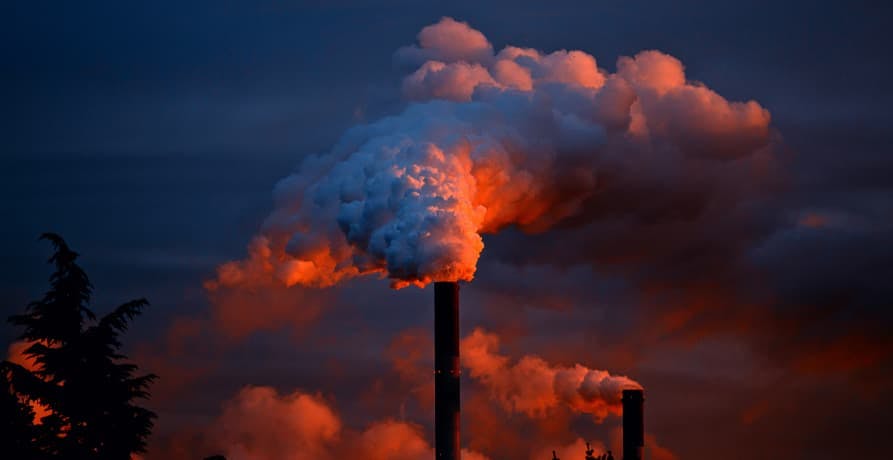
Multiple phases of Industrial Revolutions
The Industrial Revolution was not a singular event but unfolded in multiple phases, each with significant environmental impacts. The First Industrial Revolution (late 18th to early 19th centuries) began in Britain, transforming society through mechanisation and the use of steam power, leading to mass coal burning.
The Second Industrial Revolution (late 19th to early 20th centuries), often referred to as the Technological Revolution, introduced electricity, steel production, and the internal combustion engine. This phase drove mass production and the growth of heavy industries across Europe and North America. Countries like the UK, Germany, and France rapidly industrialised, leading to exponential increases in energy consumption and resource extraction.
Each phase of industrialisation added to the cumulative environmental strain, causing significant increases in air pollution, deforestation, and greenhouse gas emissions.
Population growth and mass production
As industrial revolutions progressed, urbanisation intensified. Cities across Europe, such as Manchester, Glasgow, and Birmingham, expanded rapidly to accommodate the growing workforce needed for factories. These urban centers became heavily industrialised, but also increasingly polluted. Thick smog, largely from coal-fired factories and residential heating, darkened the skies, while rivers like the Thames flowing through London became dumping grounds for industrial waste.
The environmental consequences were severe. The widespread use of coal and later oil-powered machinery led to a sharp increase in carbon emissions. Urban areas became overcrowded, with poor sanitation and air quality leading to serious public health issues. Rapid industrial growth outpaced the ability to manage waste and emissions, resulting in long-term damage to both the environment and public well-being.
A lasting environmental legacy
These industrial revolutions took place long before any meaningful environmental regulations. The focus on productivity and economic growth came at the expense of environmental sustainability. This period set in motion a pattern of unchecked resource exploitation and high emissions that continue today. The environmental impact of these revolutions - deforestation, loss of biodiversity, and the continuous rise in greenhouse gases - remains a major global challenge.
The roots of today’s environmental crisis can be traced back to these eras, which established the systems of mass production and fossil fuel dependence that continue to drive global climate change.
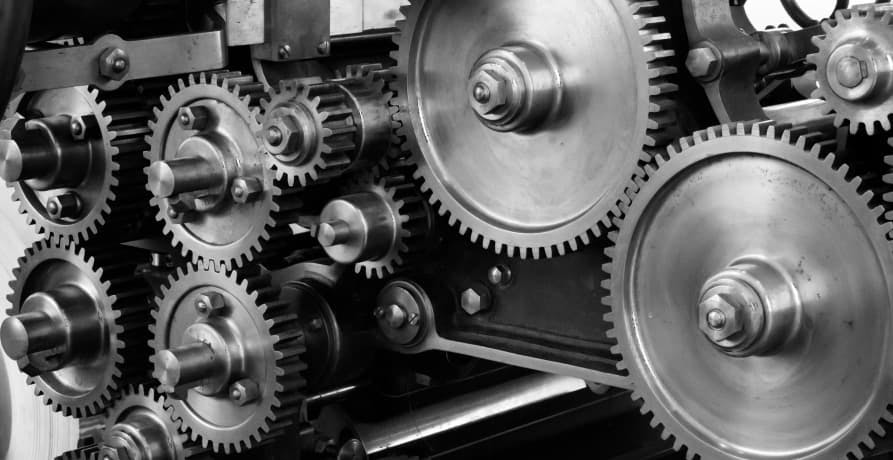
Benefits of industrialisation
Economic growth and productivity
Industrialisation led to rapid growth and a significant increase in economic output. For example, by the first half of the 19th century, manufacturing contributed over 30% of GDP in early industrialising countries like the UK and Belgium. This growth was driven by advancements in machinery, mass production, and improvements in transportation and communication.
Technological innovation
Industrialisation spurred major technological innovations, including the steam engine, mechanised textile production, and railways. These inventions revolutionised industries and enabled faster, more efficient production and transportation. The development of these technologies also laid the foundation for future advancements in medicine, science, and engineering.
Urbanisation and employment opportunities
The Industrial Revolution triggered a wave of urbanisation as people moved to cities in search of jobs. In England and Wales, for example, the proportion of the population living in cities jumped from 17% in 1801 to 72% in 1891. Industrialisation created millions of jobs in factories, railways, and coal mines, allowing people to transition from agrarian lifestyles to industrial employment.
Improved living standards
While the Industrial Revolution initially caused harsh working and living conditions, over time, it resulted in improved living standards for many. Mass production made goods more affordable and accessible, leading to better housing, clothing, and access to consumer products. Additionally, wages increased steadily throughout the 19th century, enhancing the quality of life for the working class.
Advances in medicine and public health
The Industrial Revolution saw significant medical advances. Developments in chemistry and biology led to the discovery of vaccines, improved surgical techniques, and better public health measures. Innovations like the smallpox vaccine and antiseptic procedures contributed to longer life expectancy and reduced mortality rates. Urbanisation also eventually led to better sanitation systems and the establishment of hospitals, which played a crucial role in improving public health.
Access to consumer goods
Mass production reduced the cost of goods, making products like textiles, clothing, and household items more affordable and accessible. This helped to improve living standards and established consumer culture.
Global trade and infrastructure development
Industrialisation expanded global trade networks, with goods produced in Europe and North America being exported worldwide. The construction of railways, steamships, and telegraph systems connected regions and facilitated faster trade, communication, and transportation, helping to boost economies.

Industrial Revolution environmental impact
Despite these significant benefits, industrialisation came at a steep environmental cost. The pursuit of productivity and efficiency was achieved largely by burning fossil fuels, leading to a rapid increase in carbon emissions. This shift marked the beginning of a dependency on fossil fuels that persists today.
The Industrial Revolution is directly linked to the current state of global climate change, as it set the foundation for the harmful emission habits that continue to degrade our planet. The drive for economic growth and technological progress, while transformative, has created a domino effect of rising global emissions, resource depletion, and environmental degradation that the world continues to grapple with.
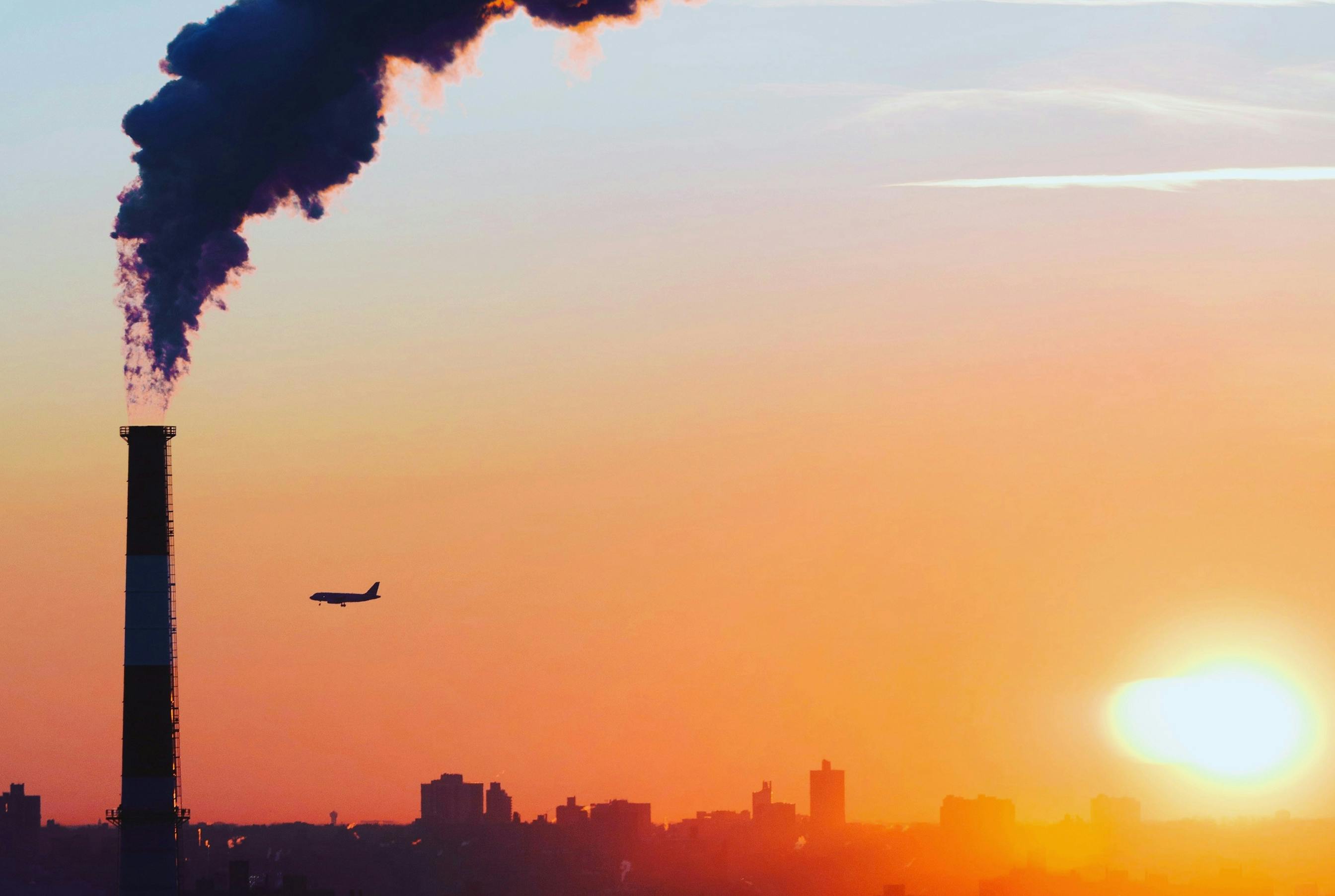
The impact of the Industrial Revolution on greenhouse gas emissions
Global GHG emissions began to rise significantly during the first Industrial Revolution in Great Britain, which marked the beginning of large-scale fossil fuel use, particularly coal. Prior to this period, global carbon dioxide (CO₂) levels were relatively stable. However, the introduction of steam engines, coal-powered factories, and mechanised production processes led to a substantial increase in CO₂ emissions.
💡 Studies show that the Earth’s average global surface temperatures have warmed by about 1.1°C since the start of the Industrial Revolution. This highlights how human activities have made a significant negative impact on the environment.
Greenhouse gas concentrations
The Industrial Revolution marked the beginning of a dramatic rise in greenhouse gas emissions, especially carbon dioxide (CO₂). Over the entire industrial era, approximately 2.3 trillion tonnes of CO₂ was released into the atmosphere. While around half of this CO₂ has been absorbed by the oceans and other ecosystems, the remaining portion has stayed in the atmosphere, leading to a significant increase in atmospheric CO₂ concentrations.
In 1750, before the onset of industrialisation, atmospheric CO₂ levels were around 275 parts per million (ppm). Today, that figure has soared to 415 ppm, with the rate of increase accelerating from 1 ppm per year in 1960 to nearly 3 ppm per year now.
Human activities currently release more than 30 billion tonnes of CO₂ into the atmosphere annually. Since the 18th century, CO₂ concentrations have risen by over 40%, driving a host of climate-related changes, from rising global temperatures to extreme weather events.
Other greenhouse gases have also seen significant increases since the start of the Industrial Revolution:
- Methane (CH₄) concentrations have more than doubled from approximately 722 parts per billion (ppb) in the 18th century to 1931 ppb in 2023.
- Nitrous oxide (N₂O) levels have increased by around 20%, rising from a pre-industrial level of 270 ppb to 337 ppb in 2023.
These rising concentrations are a direct result of industrial activities, agricultural practices, and fossil fuel consumption that began with the Industrial Revolution and have intensified in the centuries since. The impact is severe, with greenhouse gases trapping more heat in the atmosphere, contributing to global warming, and destabilising ecosystems worldwide.
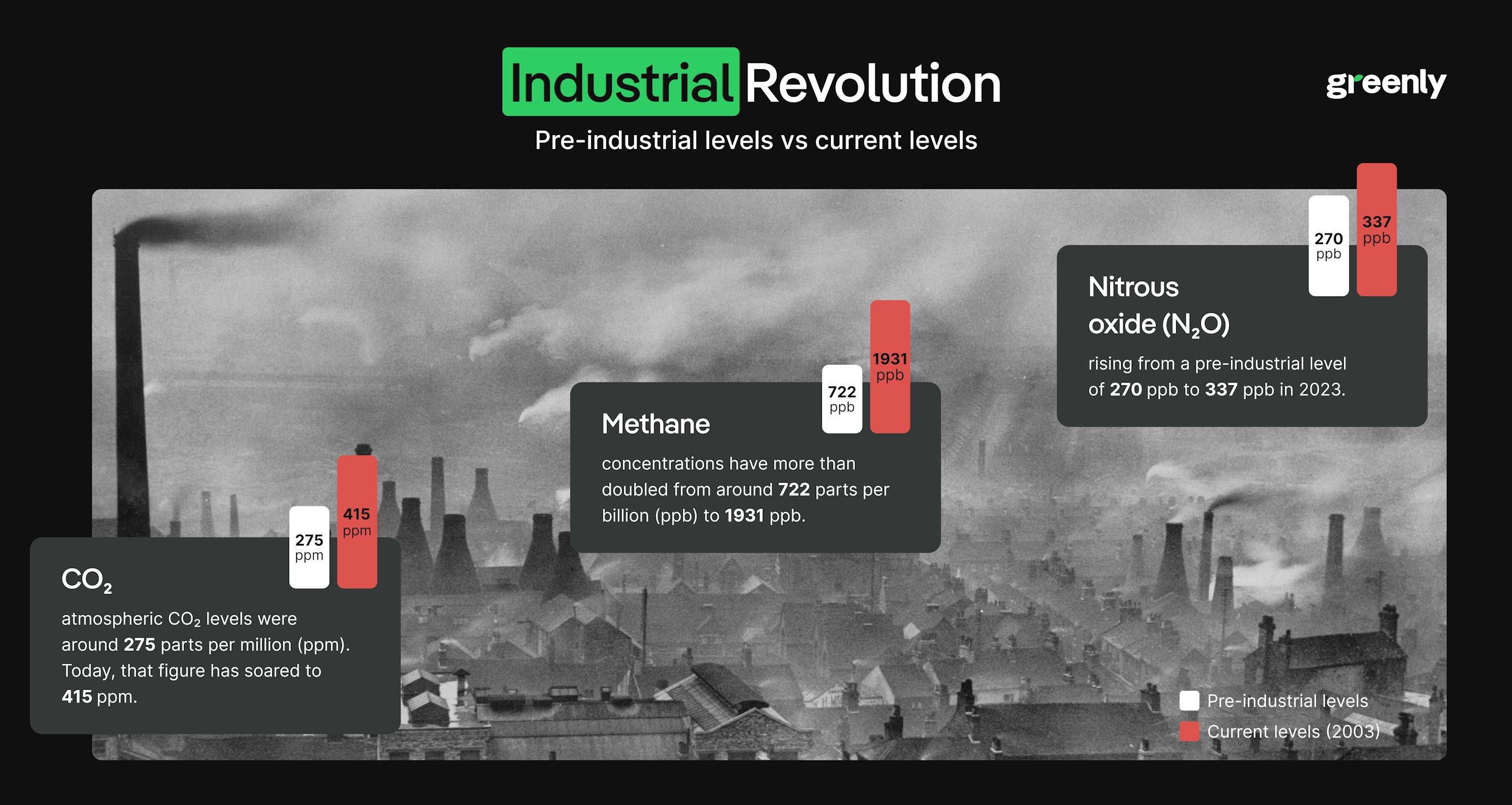

Unknown effects
The environmental consequences of the Industrial Revolution were not fully understood until many years after it began. At the time, society was focused on rapid economic growth and technological advancements, largely unaware of the deteriorating environmental quality. For example, the depletion of the ozone layer - a critical issue linked to industrial chemicals - was not identified by scientists until the 1980s, long after harmful practices had become widespread.
It wasn’t until the mid-20th century that scientists began to seriously investigate the link between human activities and climate change. In 1958, Charles David Keeling started measuring CO₂ levels at the Mauna Loa Observatory, which produced the now-famous Keeling Curve, showing a clear and consistent rise in atmospheric carbon dioxide. This data laid the foundation for understanding how human activities, especially the burning of fossil fuels, were directly contributing to global warming.
Public and political recognition of climate change took decades to materialise. By the 1980s, climate models and scientific studies provided compelling evidence that human-induced emissions were driving global temperature increases. However, it wasn’t until the early 1990s, with the establishment of the Intergovernmental Panel on Climate Change (IPCC), that there was widespread acceptance of the link between human activities and climate change. Despite this, societal and political acceptance has been a slow and ongoing process, with significant resistance and debate along the way.
Today, climate change is widely recognised as one of the most critical challenges of our time, with a consensus among scientists about its human-driven origins.
Continued reliance on fossil fuels
The Industrial Revolution established a dependency on coal and other natural resources that continue to dominate our energy landscape today. As industries expanded, coal became the primary energy source, powering factories, transportation, and heating. This reliance quickly extended to oil and natural gas during later industrial revolutions. Fossil fuels became integral not just to energy production but also to powering the machinery that enabled mass production and global trade.
Even as technology advanced, the world’s energy systems remained heavily tied to fossil fuels, resulting in a persistent rise in greenhouse gas emissions. The sheer scale of industrial growth and urbanisation set in motion during the Industrial Revolution created a demand for ever-increasing energy, much of which is still met by burning fossil fuels. Despite the introduction of renewable energy sources, fossil fuels still account for more than 80% of global energy consumption today.
How has global warming gotten worse since the Industrial Revolution?
The climate crisis is rooted in historical emissions from developed nations. Industrialised countries, such as the United States, the United Kingdom, and Germany, have been the driving forces behind global emissions since the Industrial Revolution. Developed nations are responsible for nearly 79% of historical carbon emissions, and they continue to be among the highest emitters today. For example, carbon emissions per capita are 14.99 metric tons in Australia, 14.95 metric tons in the United States, and 14.25 metric tons in Canada - far exceeding the global average of 4.66 metric tons.
This disparity highlights the deep injustice at the heart of global climate change. Wealthier nations have contributed most to the problem, yet it is the world’s poorest who are most vulnerable to the impacts. The average person in high-income countries emits more than 30 times as much CO₂ as those in low-income countries. While high and upper-middle-income countries account for the vast majority of emissions, the bottom half of the world - comprising lower-middle and low-income countries - produces less than 20% of global CO₂, with the poorest countries contributing less than 1%.
Despite this, the burden of mitigating climate change is often placed on developing countries. These nations face a challenging dilemma: they need to grow their economies, improve income levels, and raise living standards, yet they are pressured to avoid the fossil fuel-driven path that developed countries relied on for their own prosperity. Transitioning to renewable energy requires significant investment in infrastructure and technology - resources that many developing countries simply cannot afford. For many, fossil fuels remain the most viable option for economic growth in the near term.
The question of fairness is critical. How is it just for developed nations, which have historically benefited from fossil fuel use, to demand that developing countries forgo similar opportunities? It is hypocritical, particularly when countries like the United States remain highly consumerist, consuming vast amounts of resources and maintaining some of the highest carbon footprints globally.
If we are to address this global inequality, developed nations must not only reduce their own emissions but also provide financial and technological support to help developing countries transition to cleaner energy sources. Without acknowledging and rectifying these disparities, the global response to climate change will remain unjust and inadequate.
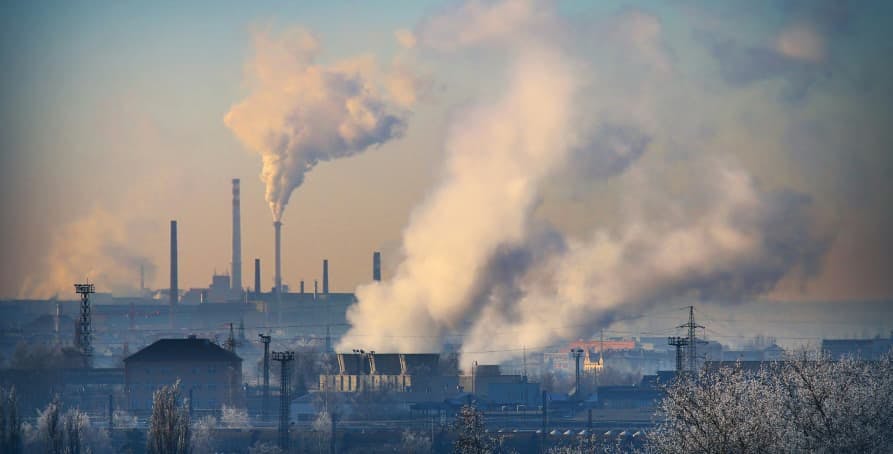
Is there a way to reverse the effects of the Industrial Revolution's environmental impact?
The Industrial Revolution fundamentally transformed societies, driving technological progress and economic growth. However, these advancements came at a steep environmental cost. The environmental damage caused by the Industrial Revolution is largely irreversible, and its most enduring consequence is the global dependency on machinery and technology powered by fossil fuels. This reliance is a primary driver of excessive carbon emissions and the accelerating pace of global warming.
By embedding fossil fuels at the core of economic development, the Industrial Revolution set a precedent for industrial practices that continue to harm the planet. The widespread adoption of coal, oil, and later natural gas fueled the growth of industries, but it also laid the foundation for the ongoing environmental crisis. As machinery and technology advanced, emissions only grew, contributing to climate change in ways that are now difficult to reverse. The challenge remains in how societies can shift away from these harmful systems while addressing the urgent need to reduce emissions and mitigate further environmental harm.
Global efforts and climate justice
In response to this growing crisis, global initiatives like the Paris Agreement and the work of the Intergovernmental Panel on Climate Change (IPCC) have been pivotal in setting targets to limit temperature rise and cut emissions. The Paris Agreement, signed by nearly every country, aims to limit global warming to well below 2°C, ideally keeping it within 1.5°C. Achieving these goals requires ambitious commitments from nations to reduce emissions, invest in clean energy technologies, and adopt sustainable practices.
However, there is a glaring injustice in how climate change impacts are distributed. The most vulnerable nations and communities - those least responsible for global emissions - are disproportionately affected by rising sea levels, extreme weather events, natural disasters, and food insecurity. This has led to growing calls for climate justice, where wealthier, developed nations take greater responsibility for their historical emissions. Initiatives like the Loss and Damage Fund, agreed upon at the COP27 summit, are critical steps toward providing financial support to countries bearing the brunt of climate change.
Mitigation and adaptation
While we cannot reverse the environmental damage already done, it is still possible to prevent further deterioration and adapt to the challenges ahead. Significant efforts are being made to transition away from fossil fuels and towards renewable energy sources like wind, solar, and hydroelectric power. This global shift requires extensive investments in infrastructure, technology, and policy changes, particularly in developing nations that may lack the resources to transition swiftly.
Adaptation strategies are equally crucial. Building resilient infrastructure, implementing early warning systems for extreme weather, and safeguarding food and water supplies are essential measures to protect communities from the worsening impacts of climate change. These actions are necessary to reduce the severity of future climate disasters and help vulnerable populations adapt to a rapidly changing environment.
A call for global solidarity
The responsibility to address climate change is not evenly distributed. Developed nations, which historically drove industrialisation and high carbon emissions, must lead the way in reducing their current emissions while providing financial and technological support to developing countries. This is not only a matter of practical necessity but also of global equity and fairness. Tackling climate change requires international cooperation and solidarity, recognising that while we cannot change the past, we can work together to create a more sustainable and just future.
What is the UK doing to reduce emissions?
Climate policy under Rishi Sunak’s government
During his time as Prime Minister, Rishi Sunak's government faced criticism for rolling back some key climate policies, raising questions about the UK’s commitment to its net-zero targets. In response to voter concerns over stringent environmental regulations, Sunak delayed the ban on new petrol and diesel cars and slowed down the phase-out of gas boilers.
He also controversially approved new licenses for oil and gas exploration in the North Sea, arguing that energy security and economic stability were top priorities. Although the government continued to invest in renewable energy and supported innovation in areas like hydrogen and carbon capture, the policy reversals undermined confidence in the UK’s long-term climate leadership.
Climate policy under the New Labour Government
With Labour winning the 2024 general election, the UK’s approach to climate action has shifted toward more ambitious targets, larger public investments, and a strong emphasis on social justice. The following table outlines Labour’s key environmental policies:
| Policy Area | Labour Government (Under Keir Starmer) |
|---|---|
| Net-Zero Commitment | Aiming for a zero-carbon energy system by 2030, with reinforced commitment to net-zero by 2050. |
| Renewable Energy | Doubling offshore wind capacity, tripling solar power output, and expanding onshore wind initiatives. |
| Publicly-Owned Energy Company | Establishing "Great British Energy," a publicly-owned clean energy company to drive renewable development. |
| Green New Deal | Launching large-scale public investment in green technologies and infrastructure, creating millions of green jobs. |
| Climate Legislation | Introducing new laws with legally binding targets for emissions reductions, biodiversity protection, and habitat restoration. |
| Climate Justice | Ensuring the green transition is fair, with targeted support for low-income households, reducing energy poverty, and addressing the needs of vulnerable communities. |
| Support for Green Innovation | Reinstating climate change as a priority for the Bank of England, increasing funding for green technologies, and encouraging sustainable business practices. |
| International Climate Leadership | Rejoining key international climate agreements and prioritising global climate negotiations, with a focus on delivering climate finance to developing nations. |
Labour’s environmental agenda focuses on positioning the UK as a global leader in tackling climate change, with a strong emphasis on equity, economic transformation, and robust climate legislation. Through ambitious targets and the Green New Deal, the Labour government aims to accelerate the transition to a sustainable future while ensuring that all communities benefit from the green economy.

How Greenly can help
As the world transitions to a low-carbon future, it’s not just governments that need to take action - businesses play a critical role in reducing global emissions. To achieve net-zero targets, companies must actively track, reduce, and offset their carbon footprints. Beyond regulatory compliance, taking meaningful steps toward sustainability can enhance a company’s brand reputation, meet customer expectations, and unlock new business opportunities.
Greenly can help businesses lead the way by providing comprehensive carbon management solutions that simplify the journey to net zero:
Carbon Management with Greenly
- Measurement of GHG emissions: Track your Scope 1, 2, and 3 emissions using advanced tools and technology for a full picture of your greenhouse gas footprint.
- Custom action plans: Work with Greenly’s climate experts to develop tailored strategies focused on key areas for improvement. We help businesses identify high-impact actions that reduce emissions and drive sustainable growth.
Decarbonising Your Supply Chain
Supply chain emissions (Scope 3) are often the most challenging to manage, but they’re crucial in achieving net-zero goals. Greenly helps you engage suppliers, transition to low-carbon options, and build more sustainable partnerships. With our support, you can increase transparency and reduce emissions throughout your supply chain.
Intuitive and Seamless Platform
Our user-friendly platform makes calculating and monitoring your carbon footprint seamless. With Greenly, you can manage your environmental impact, track progress against ESG goals, and integrate sustainability into every aspect of your business operations.
Why Choose Greenly?
Greenly provides comprehensive support throughout your sustainability journey, from carbon measurement and custom action plans to supply chain decarbonisation and platform integration. By partnering with Greenly, your business can significantly reduce its environmental impact, meet net-zero targets, and lead the way in sustainability.
Start your journey toward net zero with Greenly today and build a more sustainable future for your company.




